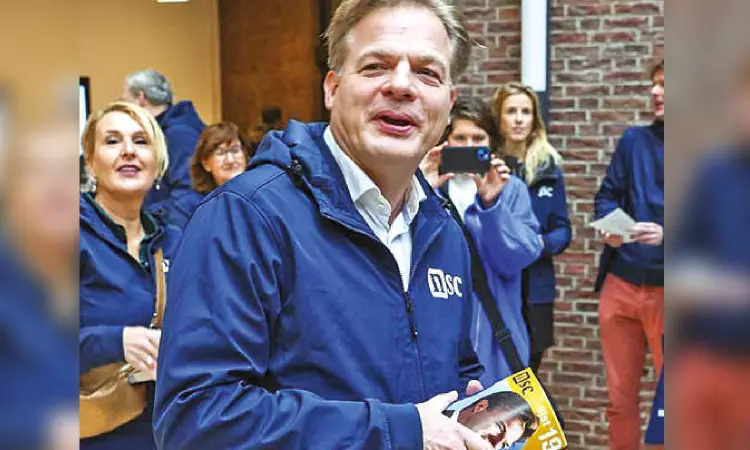Europe's Unravelling: Dutch election may buck populist trend
At the very least, the Netherlands is set to get a new premier. Mark Rutte of the centre-right People’s Party for Freedom and Democracy (VVD), who has served as prime minister since 2010, is stepping down.

• ELLA JOYNER
With only a few days to go until the Dutch election, a surprising number of voters on the streets of the small southern city of Tilburg on Thursday had not made up their minds. “I still need to read up,” Pleun, a 23-year-old economics student who declined to give her surname, told DW in the shopping district of the majority-Catholic town, once renowned for its wool industry. “These elections are very important because now a lot of things will change.”
At the very least, the Netherlands is set to get a new premier. Mark Rutte of the centre-right People’s Party for Freedom and Democracy (VVD), who has served as prime minister since 2010, is stepping down. Across the spectrum, there are many new faces at the helm of major parties. Moreover, three big party forces are polling almost neck-and-neck, making a wide range of coalitions in the kaleidoscopic multiparty Dutch system possible after the vote on November 22. Even voters with many more elections under the belt, like 72-year-old librarian Rien Vissers, aren’t totally sure. He himself is undecided between the centre-left alliance of GroenLinks and Labor (PvdA), polling third, and the Christian democratic CDA, set to take a drubbing.
“I actually think that it would be good for a more left-wing government to come in after all these years,” Vissers told DW in Tilburg. “On the other hand, the CDA are having a very difficult time, but they are a good centre party with a lot of experience in government.”
Viewed from the outside, the stand-out story of this Dutch election season has been the emergence of New Social Contract (NSC), a conservative, centrist but anti-establishment party founded in August by popular former CDA lawmaker Pieter Omtzigt. The 49-year-old made a name for himself helping to expose the full extent of a child benefits scandal, which saw tens of thousands of parents falsely accused of fraud, often with devastating financial and personal consequences. Working with lawmakers from different parties, Omtzigt’s tenacity alienated him from his party but endeared him to the public.
According to Leonie de Jonge, a political scientist from the University of Groningen, Omtzigt has built a strong profile “of being the watchdog of the government, being very feisty in parliament and asking the right questions, biting into documents, and really not letting go until he knows the answer.”
NSC, which, again, has only existed for a few months, is currently joint first in opinion polls with Rutte’s VVD at 18%, according to news outlet Politico, though Omtzigt has indicated he is not necessarily gunning for the premiership himself.
“He’s very much trusted,” de Jonge told DW. “And we in the Netherlands are experiencing a period of distrust in politicians after all the scandals that have happened.”
Omtzigt seems able to regenerate trust, with people seeing him “as sort of a reasonable alternative to the status quo,” she said. One Tilburg resident who has already decided to vote for Omtzigt is 67-year-old Maarten van den Tillaart. “Pieter’s got a new sound,” the former CDA local councillor told DW at a small political debate between candidates. “He’s an honest politician. We have seen that in the past years.”
Given the Dutch public’s trust issues, one might expect voters to swing toward figures that position themselves as outsiders to a corrupt elite — a classic marker of populism.



